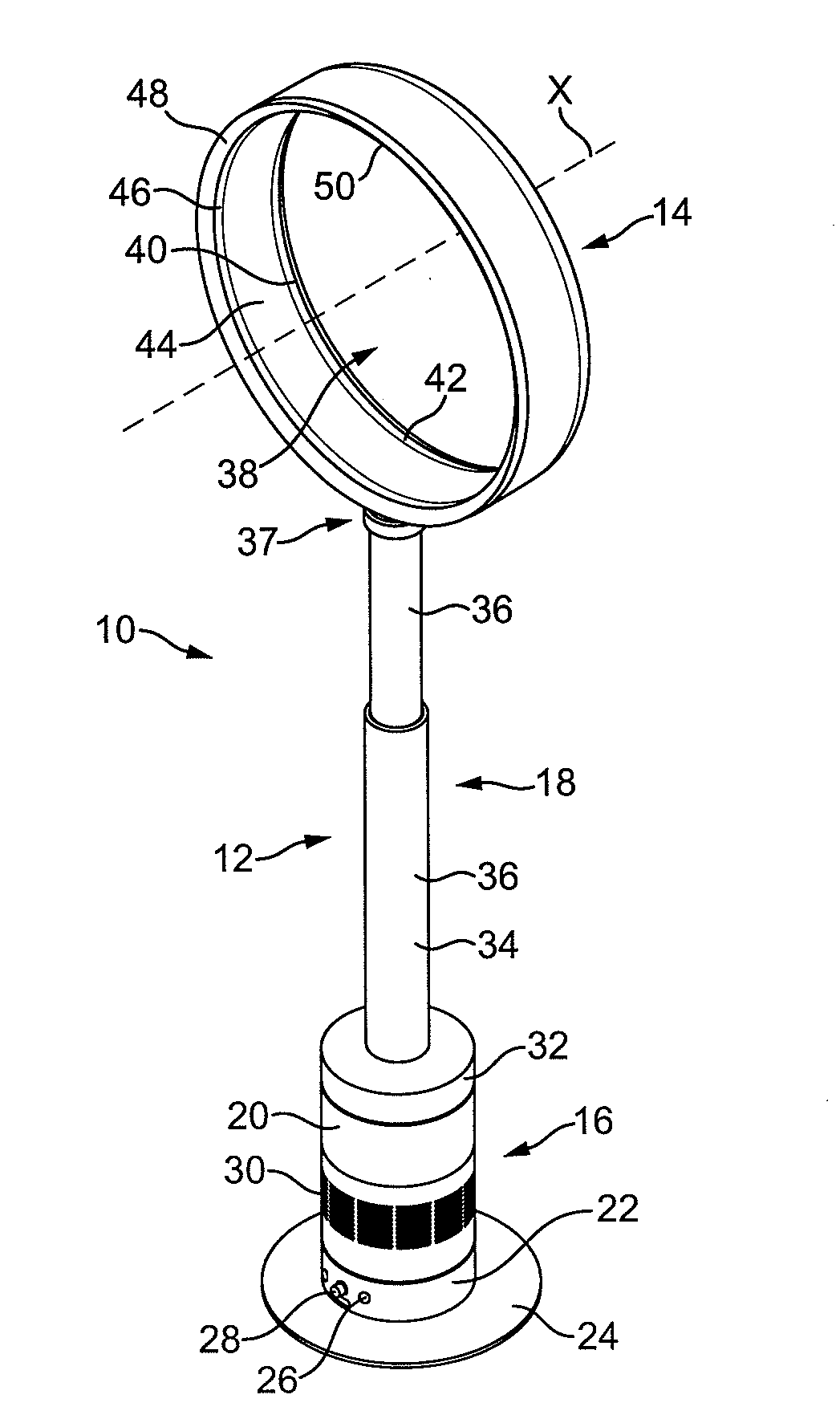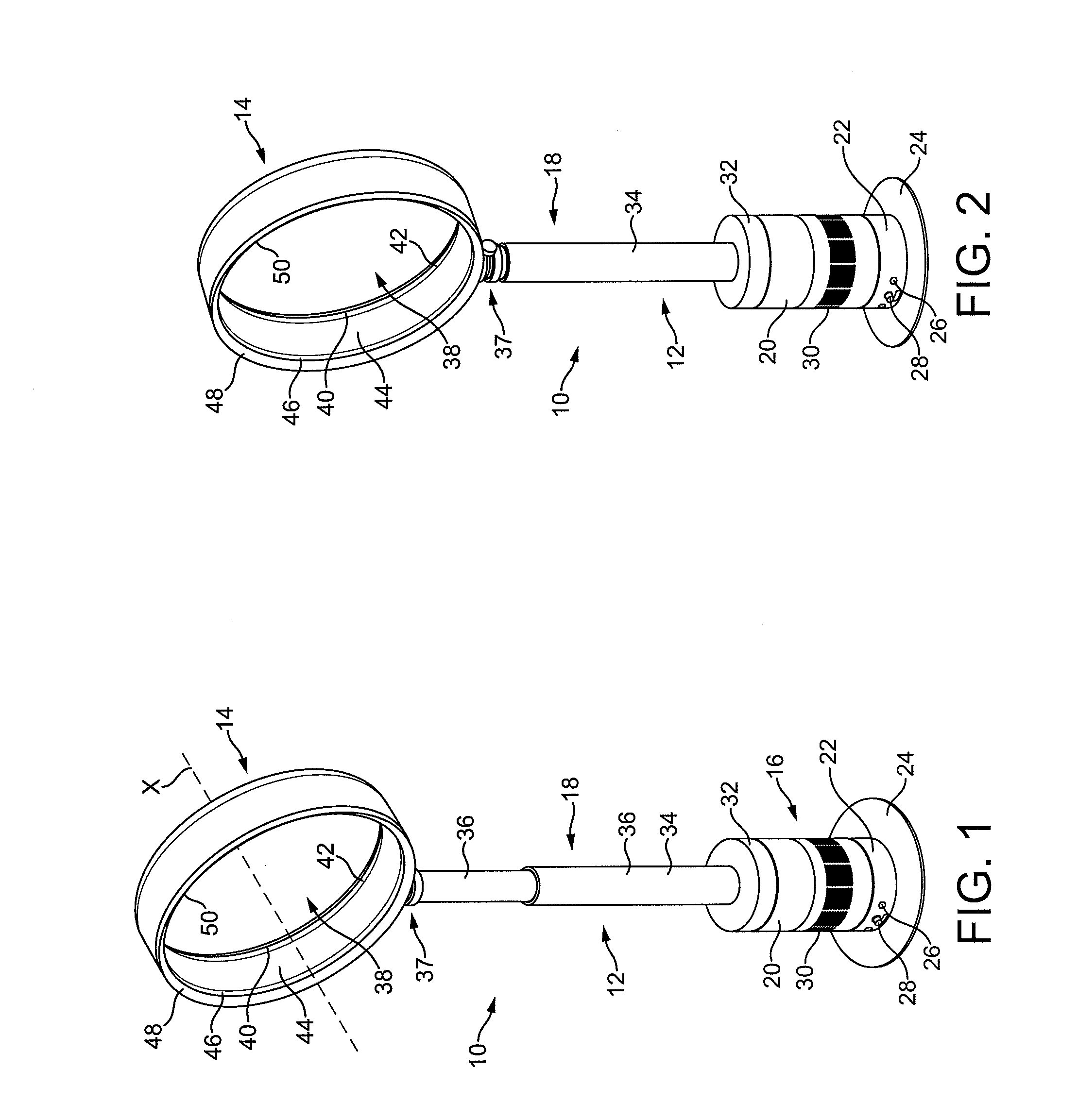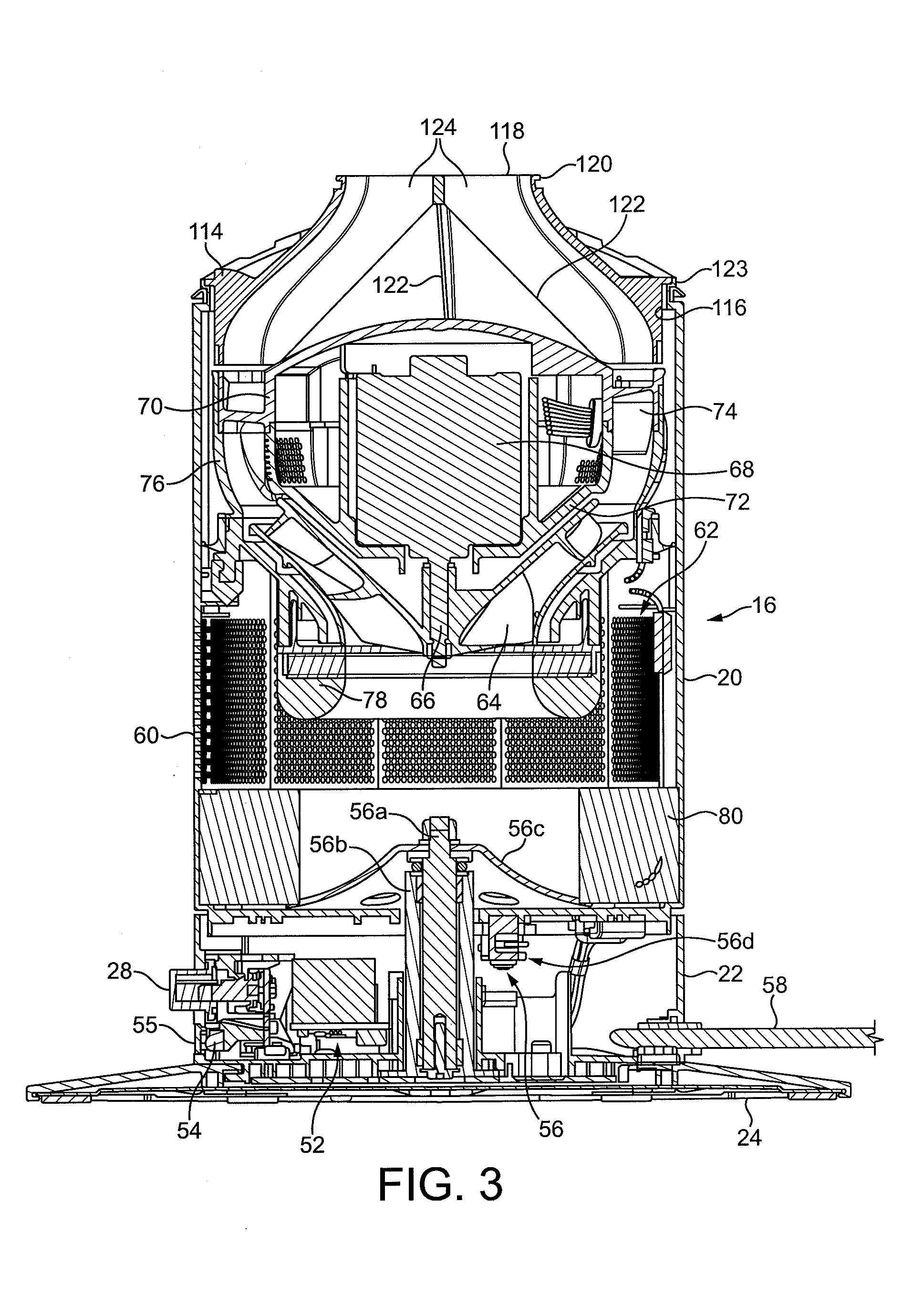Fan assembly
a technology of fan assembly and rotating blades, which is applied in the direction of motors, liquid fuel engines, non-positive displacement pumps, etc., can solve the problems of uneven or choppy air flow produced by the rotating blades of the fan, general uneven air flow, and uncomfortable for users, so as to reduce carbon debris and emissions, reduce conductance losses, and widen the range of operating speeds
- Summary
- Abstract
- Description
- Claims
- Application Information
AI Technical Summary
Benefits of technology
Problems solved by technology
Method used
Image
Examples
Embodiment Construction
[0043]FIGS. 1 and 2 illustrate perspective views of an embodiment of a fan assembly 10. In this embodiment, the fan assembly 10 is a bladeless fan assembly, and is in the form of a domestic pedestal fan comprising a height adjustable pedestal 12 and a nozzle 14 mounted on the pedestal 12 for emitting air from the fan assembly 10. The pedestal 12 comprises a floor-standing base 16 and a height-adjustable stand in the form of a telescopic duct 18 extending upwardly from the base 16 for conveying a primary air flow from the base 16 to the nozzle 14.
[0044]The base 16 of the pedestal 12 comprises a substantially cylindrical motor casing portion 20 mounted on a substantially cylindrical lower casing portion 22. The motor casing portion 20 and the lower casing portion 22 preferably have substantially the same external diameter so that the external surface of the motor casing portion 20 is substantially flush with the external surface of the lower casing portion 22. The lower casing portion...
PUM
 Login to View More
Login to View More Abstract
Description
Claims
Application Information
 Login to View More
Login to View More - R&D
- Intellectual Property
- Life Sciences
- Materials
- Tech Scout
- Unparalleled Data Quality
- Higher Quality Content
- 60% Fewer Hallucinations
Browse by: Latest US Patents, China's latest patents, Technical Efficacy Thesaurus, Application Domain, Technology Topic, Popular Technical Reports.
© 2025 PatSnap. All rights reserved.Legal|Privacy policy|Modern Slavery Act Transparency Statement|Sitemap|About US| Contact US: help@patsnap.com



